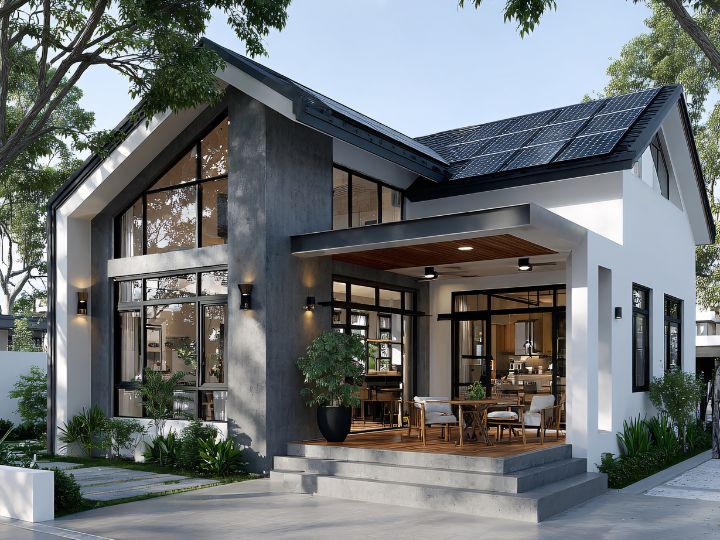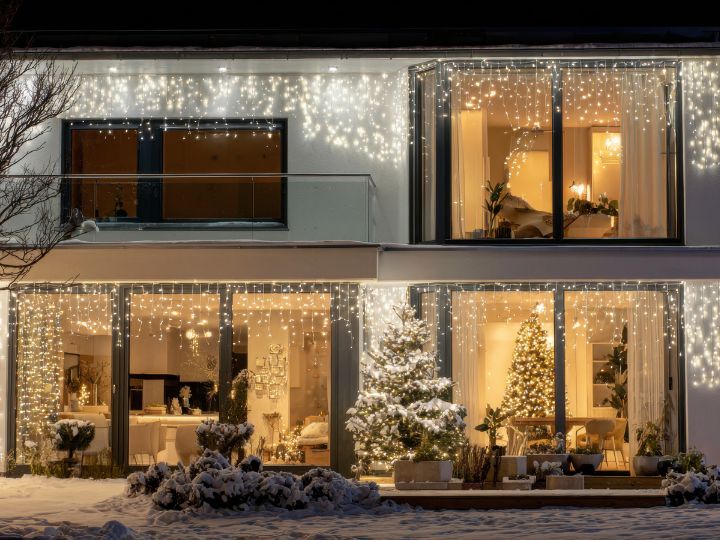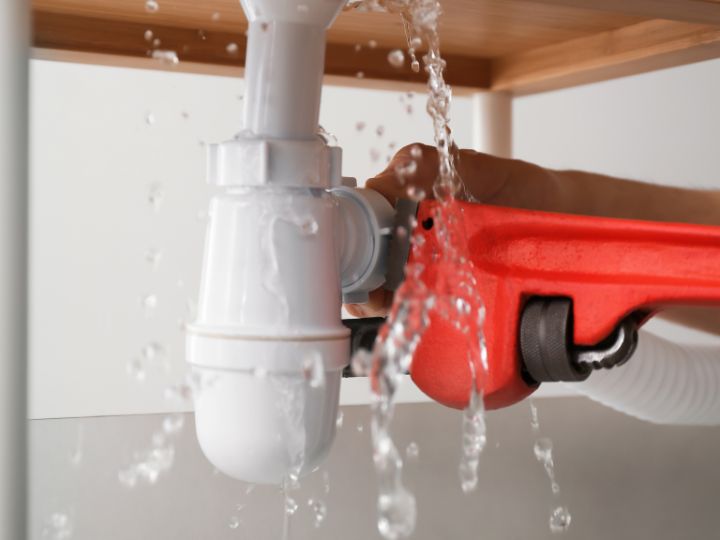
Converting Garages to Living Spaces: Smart Solutions for Tempe Homeowners

In Tempe's competitive housing market, homeowners are increasingly looking for creative ways to maximize their existing property's potential. Garage conversions have emerged as a popular solution, offering substantial additional living space without the complexity and expense of traditional additions. This comprehensive guide explores the process, considerations, and smart solutions for transforming your underutilized garage into functional, comfortable living space that adds both value and utility to your Tempe home.
Understanding the Potential of Garage Conversions in Tempe
The typical Tempe home features a two-car garage representing approximately 400-500 square feet of potential living space. This substantial footprint provides enough room for various conversion options, from guest suites and home offices to rental units or recreational spaces. With Tempe's land premiums and the rising costs of traditional additions, garage conversions offer an economical alternative for expanding your home's functional square footage.
"Many Tempe homeowners don't realize that their garage represents 20-25% of their home's footprint that's often used at far below its potential," explains a design consultant with The Contractor Guyz, a Tempe-based remodeling company specializing in space conversions. "When properly executed, these conversions can deliver additional living space at roughly half the cost per square foot of a traditional addition."
The desert climate in Tempe actually provides some advantages for garage conversions. Unlike more humid regions where below-grade spaces present moisture challenges, Tempe's dry conditions make conversions more straightforward from a structural perspective. Additionally, the year-round mild weather makes garage conversions comfortable living spaces with proper insulation and climate control.
Legal and Regulatory Considerations
Before beginning any conversion project, understanding the local regulations and requirements is essential for ensuring a compliant, safe, and legally recognized addition to your home.
Zoning and Permits
Tempe's zoning ordinances and building codes contain specific provisions regarding garage conversions. While generally permissive compared to some municipalities, the city requires permits for any conversion that alters the structure's use, electrical systems, plumbing, or ventilation.
Specific requirements include minimum ceiling heights (typically 7'6" for habitable spaces), appropriate egress windows for emergency exits, and compliance with current energy codes. Some neighborhoods, particularly in historic districts or planned communities, may have additional restrictions or architectural review requirements.
HOA Restrictions
Many Tempe neighborhoods are governed by homeowners associations that may impose additional requirements or restrictions on garage conversions. Common HOA concerns include:
Maintaining minimum parking requirements on the property Preserving neighborhood aesthetic standards Ensuring that conversions don't enable unauthorized rental situations Regulating construction hours and processes
"We always recommend that our clients begin by reviewing their HOA covenants and, when possible, discussing their plans with the architectural review committee before investing in detailed designs," advises a project manager from The Contractor Guyz. "This proactive approach helps identify potential obstacles early in the planning process."
Parking Considerations
Tempe's municipal code requires most residential properties to maintain a minimum number of off-street parking spaces. Converting a garage typically eliminates these spaces, necessitating alternative solutions such as expanded driveways, carports, or designated parking areas elsewhere on the property. In some cases, variances may be required if the property cannot accommodate replacement parking spaces.
Popular Conversion Options for Tempe Homes
Garage conversions can serve numerous purposes, each with specific design and construction considerations.
Guest Suites and Accessory Dwelling Units (ADUs)
With Tempe's significant student population and rising housing costs, many homeowners convert garages into independent living spaces for family members, guests, or rental income. These conversions typically include:
A full or three-quarter bathroom Basic kitchen or kitchenette facilities Separate HVAC systems Independent entries for privacy Sound insulation between the main house and the converted space
For rental purposes, understanding Tempe's specific requirements regarding accessory dwelling units is essential. These regulations address minimum square footage, required facilities, and occupancy limitations.
Home Offices and Workspaces
The rise of remote work has dramatically increased demand for dedicated home office spaces. Garage conversions offer ideal solutions, providing separation from household activities and distractions. These conversions typically emphasize:
Enhanced electrical systems to support technology needs Natural and task-appropriate lighting Climate control systems for year-round comfort Built-in storage and workspace solutions Acoustic treatments for video conferencing and concentration
Recreational and Specialty Spaces
Many Tempe families convert garages into spaces aligned with their lifestyles and interests:
Home theaters with proper acoustic treatments and lighting Fitness studios with appropriate flooring and ventilation Art studios with natural lighting and specialized storage Music rooms with sound insulation and acoustic treatments Game rooms and entertainment spaces for family gatherings
The Conversion Process: Critical Considerations
Successful garage conversions require thoughtful planning and attention to several key elements that affect functionality, comfort, and value.
Structural Modifications
Most garages require significant structural modifications to transform into comfortable living spaces:
Foundation and Flooring
Garage floors typically sit 4-8 inches below the main house floor level and slope toward the garage door for drainage. Addressing this differential often involves:
Pouring a new concrete layer to level the floor and raise its height Installing a subfloor system with insulation and moisture barriers Applying appropriate finished flooring materials
"The floor transition represents one of the most challenging aspects of garage conversions," notes a construction specialist from The Contractor Guyz. "Creating a seamless flow between the original home and the converted space requires careful planning and execution to avoid awkward steps or slopes."
Wall Insulation and Finishing
Garage walls typically lack the insulation and interior finishing of living spaces. Proper conversion requires:
Adding appropriate insulation to meet energy codes (particularly important in Tempe's climate extremes) Installing proper vapor barriers when needed Applying drywall and interior finishes consistent with the home's aesthetic
Ceiling Treatments
Garage ceilings often expose rafters, ductwork, and utilities. Conversion options include:
Installing a drop ceiling to conceal systems while maintaining access Applying drywall directly to the ceiling joists for a more integrated appearance Incorporating architectural elements like exposed beams for design interest
The Garage Door Dilemma
The large opening created by the garage door presents both challenges and opportunities:
Full Removal and Infill
Many conversions completely remove the garage door and frame in the opening with conventional wall construction. This approach:
Creates more usable interior wall space Provides better insulation and energy efficiency Allows for conventional window and door placement Creates a more seamless exterior appearance
Partial Preservation
Some homeowners prefer to maintain elements of the original opening:
Installing glass garage doors that provide abundant natural light Creating window arrays within the original opening Incorporating French or sliding doors within the frame
"We've seen increasing interest in preserving some aspect of the garage door opening," shares a design consultant with The Contractor Guyz. "Modern glass garage doors can provide an industrial-chic aesthetic while flooding the space with natural light, which is particularly appealing in Tempe's sunny climate."
Climate Control Solutions
Tempe's temperature extremes make proper climate control essential for comfortable garage conversions:
HVAC Integration
Options for heating and cooling converted spaces include:
Extending the home's existing HVAC system through additional ductwork Installing independent mini-split systems that provide zoned control Utilizing ductless heat pumps that offer both heating and cooling efficiency
Insulation Strategies
Proper insulation represents a critical component of garage conversions in Tempe's desert climate:
Spray foam insulation for the tightest seal and highest R-value Batt insulation combined with proper air sealing for walls and ceilings Specialized reflective barriers for mitigating Tempe's intense summer heat
Electrical and Plumbing Considerations
Most garage conversions require significant upgrades to electrical and plumbing systems:
Electrical Requirements
Garage electrical systems typically provide minimal service insufficient for living spaces. Upgrades often include:
Panel upgrades to support additional circuits Installation of sufficient outlets to meet residential code requirements Enhanced lighting systems appropriate for the intended use Dedicated circuits for high-draw appliances or equipment
Plumbing Integration
Adding plumbing to a garage conversion presents specific challenges:
Connecting to existing water and sewer lines, often requiring concrete cutting Installing proper venting systems for all fixtures Ensuring adequate water pressure for new fixtures Incorporating water heaters or tankless systems if necessary
Design Strategies for Successful Conversions
Beyond the technical aspects, thoughtful design significantly impacts the success of garage conversions:
Natural Light Maximization
Garages typically offer limited natural light, making strategic window and door placement essential:
Installing new windows on exterior walls Adding skylights or solar tubes for overhead illumination Considering glass block for privacy with light transmission Using interior transoms or clerestory windows to borrow light from adjacent spaces
Seamless Integration with the Existing Home
Creating a cohesive connection between the original home and the converted space enhances functionality:
Aligning floor levels whenever possible Ensuring consistent trim, door styles, and architectural details Designing intentional transitions that feel purposeful rather than afterthoughts Maintaining consistent flooring materials or creating deliberate transitions
Multi-functional Space Planning
Maximizing utility in converted spaces often involves creative space planning:
Incorporating built-in furniture that serves multiple purposes Utilizing Murphy beds or convertible furnishings for flexibility Designing storage solutions that minimize visual clutter Creating defined zones within open floor plans
Budget Considerations and Return on Investment
Garage conversions vary significantly in cost depending on scope, finishes, and complexity:
Typical Investment Ranges
In the current Tempe market, garage conversions typically range from:
$20,000-30,000 for basic conversions with minimal plumbing $30,000-50,000 for mid-range conversions with full bathrooms $50,000-75,000+ for premium conversions with high-end finishes and specialized features
These ranges reflect complete conversions with proper permitting and code compliance, rather than informal or DIY approaches that may create future liability issues.
Value Enhancement
When properly executed, garage conversions can significantly enhance property value:
Creating legally recognized additional square footage Providing flexible space that appeals to various buyer demographics Offering rental income potential that improves property financials Adding specialized features aligned with target buyer preferences
"While ROI varies by neighborhood and specific implementation, we typically see garage conversions returning 70-85% of their cost in immediate property value increases," explains a real estate specialist consulting with The Contractor Guyz. "When the conversion serves income-producing purposes, the financial benefits can be even more substantial."
Alternative Approaches: Partial Conversions and Flexible Solutions
Not all garage transformations require complete conversion of the space:
Partial Conversions
Some homeowners opt to convert only a portion of their garage, maintaining some parking or storage capacity:
Converting single bays of multi-bay garages Creating split-purpose spaces with partial walls or flexible dividers Implementing convertible systems that allow seasonal space modification
Carport Additions
Adding carports can offset lost covered parking when converting garages:
Attached carports that complement the home's architecture Freestanding structures that create defined outdoor spaces Pergola-style installations that provide partial coverage with aesthetic appeal
Temporary or Reversible Solutions
For homeowners concerned about future needs or resale implications:
Modular systems that can be reconfigured or removed Non-permanent wall systems that preserve the garage's structural elements Design approaches that facilitate future reversion to garage use if desired
Working with Professionals: Ensuring Success
The complexity of garage conversions makes professional guidance particularly valuable:
Selecting Qualified Contractors
When evaluating potential contractors for garage conversions, consider:
Experience specifically with garage conversions in Tempe Familiarity with local codes and permitting processes Portfolio examples of similar projects References from previous conversion clients
"Garage conversions involve unique challenges that differ from typical remodeling projects," notes a project manager from The Contractor Guyz. "Working with professionals who understand these specific challenges helps ensure that the finished space meets both your expectations and regulatory requirements."
The Design-Build Advantage
Many homeowners find that design-build firms offer particular advantages for conversion projects:
Seamless coordination between design and construction phases Single point of responsibility for the entire project Integrated budgeting that aligns designs with financial parameters Streamlined permitting and approval processes
Transforming Possibilities
Garage conversions offer Tempe homeowners remarkable opportunities to maximize their property's potential while addressing changing lifestyle needs. Whether creating space for extended family, establishing work-from-home environments, or developing income-producing assets, these transformations can substantially enhance both quality of life and property value.
By understanding the regulatory landscape, addressing technical challenges thoughtfully, and implementing design strategies that maximize functionality, Tempe homeowners can successfully convert underutilized garage space into some of their home's most valuable square footage.
Professional guidance proves invaluable throughout this process, from initial concept development through final implementation. Remodeling company The Contractor Guyz specialize in navigating the specific challenges of Tempe garage conversions, helping homeowners transform possibilities into practical, beautiful living spaces that serve their evolving needs.
Latest Blogs
Transform your dream home into reality with our premier renovation services!
Book a call with us today and let's create the perfect space tailored just for you.

.svg)
.svg)



